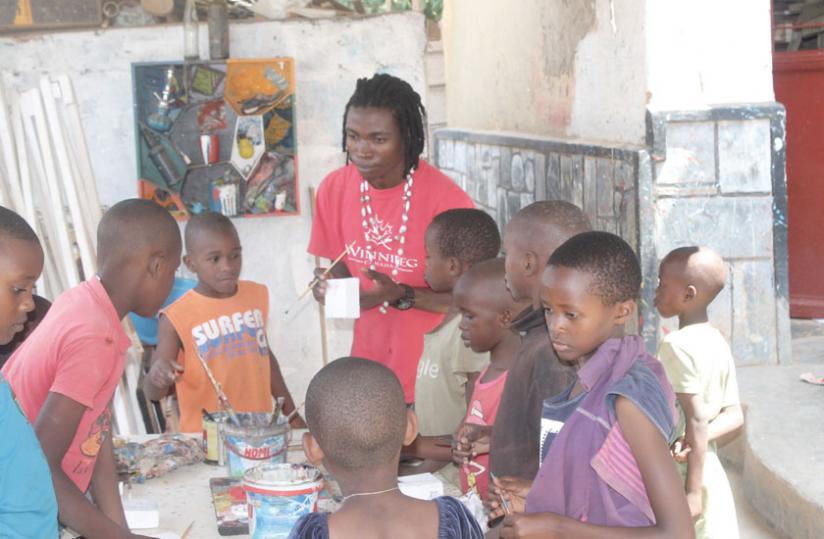For Jean Marie Vianney Munezero, leading a troubled childhood was not the end of life. Instead, it had a profound influence in making him a successful and amultitalented artist he is today.


For Jean Marie Vianney Munezero, leading a troubled childhood was not the end of life.
Instead, it had a profound influence in making him a successful and amultitalented artist he is today.
Born in 1990 in the current Rusizi district, Western Province, Munezero’s early childhood involved struggling daily to find a meaning out of life after his parents separated while he was still very young.
The fifth born in a family of six had to drop out of school in primary four.
However, this didn’t dampen his resolve to find a meaningful life.
"I used to collect discarded materials in my neighbourhood like wires and clothes to make toy cars and bicycles for my neighbourhood friends, and most times, they gave me some little money for my efforts that I used to buy my basic needs,” says Munezero.
"I had to learn being independent when I was still very young because I had no parents to take care of my needs,” he adds.
He also had to endure rejection from his blood relatives, and he cites his maternal grandfather who blatantly told him to go and look for his father when he went to visit his mother, who had taken refuge at her father’s home after their parents’ life changing separation.
The grandfather at one point threatened to kill him, as he narrates.
His search for a life led him to Kigali when he was 15 years old in search of any kind of job. In Kigali, he started doing odd jobs as a construction worker.
However, his passion for arts led him to look for an opportunity at Ivuka Arts Centre in Kacyiru suburb where he says that he improved his early sculpturing skills and learned painting under the apprenticeship of several artists at this modern arts centre.
"I didn’t have money for materials but I credit William Ngendandumwe and Tony Cyizanye (founder of Yego Arts Center, Nyarutarama) who helped me to develop my skills. They helped me to start my painting journey,” Munezero reminisces.
Munezero has now become one of the most recognized modern artists not only at Ivuka, but also across the arts industry in Rwanda.
"I made it because of resilience and the fact that art makes me forget about my troubled past. Art to me is not just about life but it’s also cathartic,”
"I release bottled feelings inside me when I do a good piece of art. It just makes me happy about myself,” Munezero confesses.
To repay for the kind of support he got when he was struggling as a budding artist, Munezero teaches a group of young kids to develop their latent talent in arts.
"I started the kids’ project out of realization that several of these children can turn out to be great artists to take the mantle from us when we finally bow out,” he observes
The children normally come to Ivuka Arts Centre on specific days after school, though Munezero says that he would have wanted them to come every day, but lack of enough materials to cater for their large numbers is his major challenge.
Munezero is also a member of artists who have been making Kigali colourful through Kurema, Kureba and Kwiga initiative, a collaborative network of Rwanda mural artists using visual and public arts as tools for sharing stories and building relationships, while at the same time creating awareness about social exclusion about HIV and AIDS.
"I want to capture what everybody feels in normal day life. This is why I can even take discarded objects to fashion them into a beautiful work of art, because this has been part of my life,” he concludes.
editorial@newtimes.co.rw


